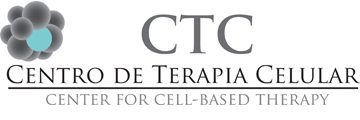Institutional Support
CTC involves the following Institutions:
• University of São Paulo – USP
Medical School of Ribeirão Preto – FMRP-USP
School of Animal Sciences and Food Engineering – FZEA – USP
Institute of Biosciences – IB-USP
• Regional Center of Hemotherapy of Ribeirão Preto – HCFMRP-USP and its Regional Blood Center of Ribeirão Preto
The specific contribution of each institution to CTC project is described as follows:
University of São Paulo – USP
USP is responsible for the wage of ten main investigators, eight associated investigators and twelve specialized technicians. It offers academic and research infrastructure (classrooms, conference rooms, libraries, animal houses, veterinary hospital, laboratories, computer network) and undergraduate and postgraduate programs linked to the project.
In case of CTC project being approved, USP guarantees, according to an agreement with the Scientific Director from FAPESP, the following additional items:
1. The hiring of a Higher Education Public Servant, to work as an Executive Manager of the Center;
2. The hiring of a Higher Education Specialized Technician, to work as the Manager of Education and Knowledge Dissemination.
3. The hiring of two Higher Education Public Servants for the exercise of technical and scientific activities, one as soon as the Center has been approved.
4. The hiring of two new Professors under exclusive dedication, to work as researchers in the project area, at the Department of the project Coordinator (under the usual duties of the University Professors), one as soon as the project has been approved and the other in the subsequent year.
Additionally, USP makes available the structure of the Agência USP de Inovação to support CEPID in the knowledge transfer for companies and for the society, offering a server from the agency to attend CEPID, enabling the hiring of a specific professional from that agency in case of the project evolution demonstrates this need. Agência USP de Inovação is a department subordinated to the Pró-Reitoria de Pesquisa, that deals with all aspects related to the protection of intellectual property, technology transfer contracts, and prospection of collaboration in the technology and innovation areas. At present, the agency has 20 employees, and 15 trainees, including innovation agents and lawyers.
USP-FMRP offers academic structure, hospital and laboratory for the development of basic and clinical research in the area of Cellular Therapy, specifically the laboratories of the Division of Haematology (622 m2) and the wards and unity of stem cell transplantation (514 m2), in addition to operating and maintenance costs of these areas.
USP FZEA offers the academic structure with teachers, employees, a laboratory structure of 380 m2, and a veterinary hospital already in the final stages of construction with 180 m2 and with veterinarians and technicians that will be dedicated to technical production of cells and conduct studies in the area of innovative therapies.
IB-USP offers, in addition to the academic infrastructure and basic research laboratories, a lab of confocal microscopy and another in process of installation for monitoring cells and microCT molecules in small animals. In addition, the LaNCE-USP (180 m2) Lab in the Department of genetics and Evolutionary Biology has a clean room of 60 m2 equipped to grow embryonic stem cells under GMP conditions. Finally, the LaNCE has partnered with the ICB-IV (Dra. Silvia Massironi), which gives access to the animal experimentation unit, where mice are kept in appropriate conditions for pre-clinical research.
Regional Center of Hemotherapy – HCFMRP-USP (Regional Blood Center)
The Regional Blood Center is the Institution where most of the CTC activities will be concentrated. The Center has independent administration, but it is supported by the University, University Hospital, and Secretaria de Estado da Saúde. The Regional Blood Center will house the administrative head office of CTC that is located in its Center of Education (CEDUC).
The Regional Blood Center has 11.804 m2 of area built, from which 5.217 m2 will be used for the activities of the Center. It is included in this area the research laboratories, the areas intended for the educational activities (HS, MuLEC, Hemocentro TV, Classrooms) and area for administrative support to the Center. (http://ctcusp.org/?page_id=279)
The Regional Blood Center will pay its expenses for the working of these areas (cleaning, water, phone, electrical energy, security). Additionally, it will pay the wage of six PhD researchers, twenty one specialized laboratory technicians and will make available R$200.000,00 for support in congresses and training scholarships.
At CEDUC, specifically for the administrative and educational activities, five employees have been hired, including teachers, journalists and technicians.
In the first semester of 2012, the Regional Blood Center will open four classrooms with total area of 250 m2 and the new animal house with 1411 m2.
With the approval of the project, it is expected the construction of the House of Science which will house all the educational and knowledge diffusion activities. The new building will have 2.240 m2 and will cost R$6,5 million.
In the following tables are presented the values of the institutional support per year, in terms of personnel, costs of infrastructure , and additional counterpart in case of project approval.
Table 1 – Costs with Personnel
[table id=24 /]
Table 2 – Costs with Infrastructure and Maintenance
[table id=25 /]
*These values represent investments in the infrastructure.
Table 3 – Expected Additional Counterparts
[table id=31 /]
*These values represent investments in the infrastructure.
The estimate value for investment is R$ 5,161,310.58 a year (USD 2,867,394.76).
